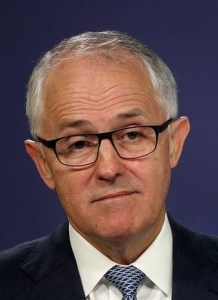Pathetic: adjective, ‘unsuccessful or showing no ability, effort, or bravery, so that people feel no respect’
Last week, the Senate witnessed one of the most pathetic votes by any Government in recent memory: on Wednesday 1 September, Liberal and National Party Senators voted against amendment sheet 1427 to the Sex Discrimination and Fair Work (Respect at Work) Amendment Bill 2021.
As that description suggests, those amendments, moved by the Australian Greens, were largely technical in nature. All they did (or at least would have done, had they passed), was ensure the terms gender identity and intersex status were included in exactly the same sections of the Fair Work Act 2009 (Cth) which cover other protected attributes, such as race, sex, disability and sexual orientation.
That includes provisions which protect workers against adverse action (section 351(1)) and unlawful termination (section 772(1)(f)) on the basis of who they are, meaning the amendments would have guaranteed trans, gender diverse and intersex employees the exact same ability to access the Fair Work Commission as women, people with disability and even lesbians, gay men and bisexuals. [For more background on this issue, see ‘Unfairness in the Fair Work Act’]
As well as being largely technical, they also should have been entirely uncontroversial. Gender identity and intersex status are already protected attributes in the Sex Discrimination Act 1984 (Cth). The amendments were simply intended to bring these two pieces of legislation into closer alignment.
Indeed, the Greens changes in sheet 1427 directly tied the proposed definitions in the Fair Work Act back to the Sex Discrimination Act:
‘gender identity has the same meaning as in the Sex Discrimination Act 1984.
intersex status has the same meaning as in the Sex Discrimination Act 1984.’[i]
And yet, these largely technical and entirely uncontroversial changes were still rejected by the Coalition Government. Together with One Nation, their votes were enough for the amendments to be voted down, leaving the rights of trans, gender diverse and intersex workers in doubt.
It seems like anything that advances the rights of LGBTI Australians, even if just an inch, will inevitably be rejected by the Morrison Liberal/National Government. Which is, frankly, pathetic.
*****
Antipatheic: adjective, ‘showing or feeling a strong dislike, opposition, or anger’
Perhaps the most depressing aspect of this situation is that the 2021 Coalition were voting against the protection of groups which the Coalition had actually supported eight years earlier.
In 2013, the Liberal/National Opposition, under the leadership of Tony ‘no friend of the gays’ Abbott, voted in favour of the then-Labor Government’s historic Sex Discrimination Amendment (Sexual Orientation, Gender Identity and Intersex Status) Act 2013.
That legislation inserted gender identity and intersex status into the Sex Discrimination Act in the first place. But, eight years later, the Coalition refused to back the inclusion of the exact same terms, with the exact same definitions, in the Fair Work Act.
Think about that for a second. The current Government is more opposed to the rights of trans, gender diverse and intersex Australians than the Abbott Opposition was back then.
The ‘strong dislike, opposition or anger’ towards trans rights from notoriously transphobic Senators like Claire Chandler has overwhelmed any semblance of support from other, more sympathetic sections of the Morrison Government.[ii]
The Coalition’s antipathy to trans rights also seems to have overwhelmed their ability to make political judgements that benefit them.
This amendment was a potential win for them. Almost 28 months into a maximum 36-month parliamentary term, it is increasingly likely the Government will not pass a single pro-LGBTI Bill before the next election (including a failure to introduce legislation to implement Scott Morrison’s since-broken promise to protect LGBT students in religious schools against discrimination).
If they had chosen to vote for these changes – the most straight-forward of amendments, merely introducing consistency in the groups protected under the Sex Discrimination and Fair Work Acts – moderate Liberal Senators, and Liberal candidates for socially-progressive electorates, could have pointed to this outcome as evidence they care about LGBTI rights.
Instead, by voting against these amendments, everybody can see that they don’t care, about anybody whose gender identities or sex characteristics are different to societal expectations.
*****
The Government’s reasons for not supporting these amendments also demonstrate the simultaneously pathetic and antipathetic nature of their opposition. Attorney-General, Senator Michaelia Cash, made the following comments in relation to the Greens’ amendments:
‘The government will also be opposing the amendment moved by the Australian Greens. The government believes that people are entitled to respect, dignity and the opportunity to participate in society and receive the protection of the law, regardless of their sexual orientation, gender identity or intersex status. The Sex Discrimination Act prohibits discrimination on these grounds in a range of areas of public life. The primary purpose of this bill is to implement the government’s commitments in its response to the Respect@Work report and to implement, as a matter of urgency, measures to strengthen national laws to better prevent and respond to sexual harassment in Australian workplaces. Discrimination on the basis of gender identity and intersex status is already prohibited in the Sex Discrimination Act…’
Cash raises a number of different arguments there. Unfortunately, none of them are compelling upon closer inspection.
For example, her attempt to declare that the primary purpose of the legislation is ‘to implement the government’s commitments in its response to the Respect@Work report’, might be an explanation of why they did not include these changes in the original Bill. It is not a justification for voting against these changes when they are moved by others.
Even worse, Cash’s argument is directly undermined by the words of her own Department, exactly one year-to-the-day beforehand. In response to my letter to then-Attorney-General Christian Porter calling for him to address this very issue, I received a reply dated 1 September 2020 from an Assistant Secretary in the Attorney-General’s Department, which included the following paragraph:
‘I note the discrepancies you raise between the language in the Fair Work Act 2009 and the Sex Discrimination Act 1984. At this point in time, the Australian Government has not indicated an intention to amend the Fair Work Act 2009 to explicitly include gender identity or intersex status as grounds for lodging an adverse action or unlawful termination application. In saying this, however, you may be interested to know that the Australian Government is currently considering its response to a number of recommendations made in the Australian Human Rights Commission’s Respect@Work: Sexual Harassment National Inquiry Report. This process provides scope for the issues you have raised here to be considered further in the implementation of any proposed recommendations.’ [emphasis added]
Not only did the Department acknowledge this legislative gap, but they highlighted the Respect@Work response as an opportunity for this issue to be resolved. It was the Government itself, and possibly even Michaelia Cash herself or her predecessor Christian Porter, who actively decided to ignore, rather than address, this discrepancy.
Cash’s other arguments are just as flawed. She mentions not once, but twice, that discrimination on the basis of gender identity and intersex status is already prohibited under the Sex Discrimination Act. Which, well, yes, of course it is. As is discrimination on the basis of sex and sexual orientation.
The point is, while sex and sexual orientation are also explicitly included in the Fair Work Act, gender identity and intersex status are not. Meaning women, lesbians, gay men and bisexuals have clear rights to access the Fair Work Commission, while trans, gender diverse and intersex workers do not. That inequality of access is exactly the issue the Greens’ amendments were intended to address, amendments the Government chose to reject.
Which reveals the lie at the heart of Cash’s introductory comment, that ‘[t]he government believes that people are entitled to respect, dignity and the opportunity to participate in society and receive the protection of the law, regardless of their sexual orientation, gender identity or intersex status.’
No. No, you don’t. If you did, you would have voted for these amendments.
*****
Of course, for most people paying attention to Australian politics these days, the fact the Coalition Government doesn’t really give a shit about LGBTI Australians is no surprise.
Last Wednesday’s vote by Liberal and National Party Senators against amendments to explicitly include trans, gender diverse and intersex workers in the Fair Work Act wouldn’t even make a list of the top five worst things the Abbott/Turnbull/Morrison Government has done in relation to LGBTI rights over the past eight years.
[A list that, from my perspective, would include (in no particular order):
- Holding an unnecessary, wasteful and divisive public vote on our fundamental human rights
- Defunding an evidence-based program against anti-LGBTI bullying in schools
- Detaining LGBTI people seeking asylum in countries that criminalise homosexuality
- Failing to implement the recommendations of the 2013 Senate Inquiry into the Involuntary or Coerced Sterilisation of Intersex People (allowing these human rights violations to continue to this day), and
- Breaking its promise to protect vulnerable LGBT kids against abuse and mistreatment by publicly-funded religious schools.]
It probably won’t even be the worst thing the Coalition Government does to LGBTI Australians this year, with Cash also committing to introduce the recently-revived Religious Discrimination Bill before the end of 2021.
This is legislation that, based on the Second Exposure Draft, would encourage anti-LGBT comments in all areas of public life, as well as making access to essential healthcare much more difficult, among other serious threats. [For more background on this issue, see ‘The ‘Bad Faith’ Religious Discrimination Bill Must Be Blocked’]
Nevertheless, just because this isn’t the worst thing they’ve ever done, doesn’t mean their vote on Wednesday was any less abhorrent.
And just because I earlier described these amendments as largely technical in nature, doesn’t mean they were any less important.
As well as guaranteeing access to the Fair Work Commission, these amendments were an opportunity for the Government, and Parliament more broadly, to reaffirm that trans, gender diverse and intersex Australians should enjoy the same rights as everyone else.
In rejecting the Greens’ amendments to add gender identity and intersex status to the Fair Work Act, the Government repudiated this fundamental principle.
The Senate vote last Wednesday perfectly encapsulates the Morrison Government’s pettiness, and the meanness of its approach, when it comes to LGBTI rights.
How pathetic in their lack of principle, and basic decency.
How antipathetic to the human rights and dignity of their fellow Australians.
In roughly equal measure.

If you have enjoyed reading this article, please consider subscribing to receive future posts, via the right-hand scroll bar on the desktop version of this blog or near the bottom of the page on mobile. You can also follow me on twitter @alawriedejesus
Footnotes:
[i] Earlier amendments (sheet 1373) that would have introduced the protected attribute of sex characteristics, rather than intersex status, in the Fair Work Act to reflect both best practice and the views of intersex advocates such as Intersex Human Rights Australia, failed with both the Government and Labor expressing their opposition. Sheet 1427, which included intersex status based on the definition in the Sex Discrimination Act was then moved by the Greens because it was seen as being entirely uncontroversial and therefore more chance of succeeding.
[ii] NSW Liberal Senator Andrew Bragg did refer to the issue of trans, gender diverse and intersex inclusion in the Fair Work Act in his second reading debate speech, expressing support for it being addressed at some point, but did not find the courage to cross the floor on the amendment itself.








